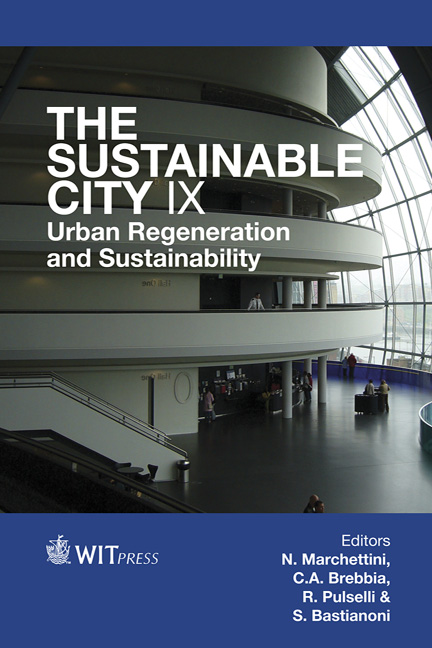Advanced Travel Demand Management Policies
Price
Free (open access)
Transaction
Volume
191
Pages
10
Page Range
703 - 712
Published
2014
Size
560 kb
Paper DOI
10.2495/SC140591
Copyright
WIT Press
Author(s)
G. Galante, M. Russo Spena
Abstract
European urban and metropolitan regions are characterized by the concentration of activities in a limited area and by transit systems which coexist with individual transportation. Traditionally, travel demand management (TDM) policies have been applied to enhance the efficiency, sustainability and safety of the transportation systems, often via an increased use of transit modes. This strategy is one of the most effective to ensure: i) lower road-space occupation; ii) lower pollution; iii) lower energy consumption; iv) higher safety. Moreover, an increased transit use also has positive effects on the mobility still remaining on individual modes. Many TDM policies have been proposed in the past, based on push (say, disincentives of the car-mode) and pull (say, incentives of the transit mode) strategies, impacting at different levels on the mobility and on the activity patterns of travellers. Within the push strategies, measures can be based on regulation byquantity (limitation of use, as in restricted access areas) or by-pricing (e.g. road/area pricing). A more recent concept involves the use of tradable-drivingrights. The approach has already been claimed to be feasible; however, it has not reached a significant popularity among the transportation analysts nor within the decision-makers, perhaps because of difficult technical and administrative implementation, as well as some residual equity/redistribution issues. In this paper the potential of a new-generation of tradable driving rights, based on ITS (Intelligent Transportation System) is analysed. Driving rights are intended here as allowance/permits, acquired by travellers in exchange for virtuous mobility. Virtuosity is related to the contribution toward the efficiency, sustainability and safety of the mobility behaviour. Permits can be spent in exchange for nonvirtuous behaviour. The proposed approach is tested on a real network and with real data; two scenarios with different strategies in assigning permits are assessed in order to show the ability of the model to forecast the effects of innovative travel demand policies.
Keywords
intelligent transportation systems, smart cities, travel demand management, mobility allowance and permits





